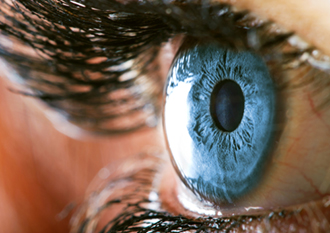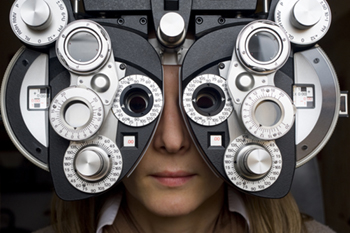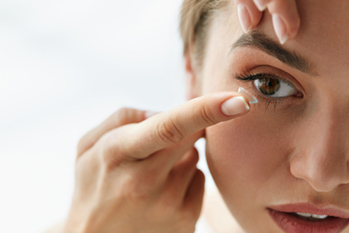5 Routine Eye Care Tips To Follow

On a health kick? Don’t forget your eyes! There are quite a few things you can do to keep your eyes in tip-top shape, no matter what age you are – taking small steps to care for your eye health can go a long way in preserving your vision long term and aiding your overall health.
Keep reading for 5 routine eye care tips to follow!
1. Limit Your Screen Time

Do your eyes ever feel strained, dry, or exhausted after a day of working in front of the computer? You’re not alone!
These are common symptoms of a condition known as computer vision syndrome. Also known as digital eye strain, these are a group of vision-related problems that stem from too much screen time.
How much discomfort you feel from looking at digital devices and screens will often increase with the amount of screen time. What can you do to prevent digital eye strain?
Try Computer Glasses

Since quitting all digital devices isn’t an option, you need to take care of your eyes instead. One thing you can try is special glasses made for computer and device viewing.
These glasses usually have different lens powers, tints, or coatings to counteract blue light emitted from digital devices. This can help prevent digital eye strain and make your eyes more comfortable throughout the work day.
Evaluate How The Computer Is Being Used

Another reason why people experience eye strain and computer vision syndrome can be due to how they are using their computer. This can include lighting, what kind of chair you sit in, the position of the monitor, and how many breaks you take.
To sit comfortably at a computer, most people need to view it with their eyes downward. The screen should be 15 to 20 degrees below your eye level, which is about 4 or 5 inches. Having it too high can cause neck pain or other injuries.
You also need to take lighting into consideration. If you’re near a window, make sure to use blinds or drapes to avoid glare on your computer screen.
If possible, consider using a screen glare filter to reduce how much light is reflected back from your screen into your eyes. This can help reduce eye pain or strain you experience from spending time in front of a computer all day.
Probably the most important thing you can do is take frequent breaks away from your screen throughout the day. This means resting your eyes for 15 minutes after 2 hours of straight computer use.
Even better is to take short breaks every 20 minutes by looking away from your screen for 20 seconds. While doing this, don’t look at your phone, since it’s one more digital device that could contribute to eye strain.
2. Remember To Blink

Whether you’re at the computer working on a project or just binge-watching your favorite show, these activities make you less likely to blink. Your resting blink rate is estimated to be about eight to 21 blinks per minute.
That number increases if you’re engaged in conversation, moving up to an average of 10.5 to 32.5 blinks per minute. When you’re focused on a task, your blink rate drops significantly.
The amount of focus some tasks require means that the last thing you’re thinking about is whether you’re blinking enough. Your blink rate suffers even more when you work on a computer since studies show that you blink approximately 60 percent less when using a computer.
This is a big part of the reason why your eyes feel dry after a long session spent staring at your computer screen. It also contributes to the tear film in the eye being replenished less frequently and evaporating more quickly.
This causes discomfort and the classic symptoms of dry eye syndrome. Chances are, if you’ve been working in front of your computer all day, you haven’t been blinking enough.
If you know you’ll be working on a big project, make sure to have some artificial tears on hand. They can help keep your eyes moisturized even if you do forget to blink as much as you should.
You should also do your best to take breaks and get away from the computer screen. Take a break and walk outside for some fresh air!
3. Avoid Rubbing Your Eyes

It may be tempting, but one thing you should NEVER do is rub your eyes. Even if they are itchy and driving you crazy, you should never, ever rub your eyes.
Rubbing your eyes can easily introduce bacteria from your hands into your eyes and cause an infection. It can also further irritate your eyes and make them more uncomfortable. If your eyes are really itchy, artificial tears or allergy eye drops are the way to go.
Before putting them in your eyes, make sure that your hands are clean and dry. Then, put the eye drops or tears in using the “pocket” method.
This is the safest way because it doesn’t allow bacteria into your eyes. By using this method, you are only creating a small pocket for the drops or tears to go into.
If you find that your eyes are itchy or feel irritated all the time, this could be a sign of something bigger. Let your eye doctor know sooner rather than later.
4. Always Have Regular Eye Exams

Regular comprehensive eye exams should be an integral part of your preventative health care routine. If you wear glasses or contacts, you know that you should see your eye doctor at least once a year. But the same is also true for those that may not have vision problems as well.
Most people should see their eye doctor for an eye exam at least every one to two years. Eye exams are a crucial way to test your vision health and screen for eye diseases.
As you get older, this becomes even more important and is the only way to diagnose conditions like glaucoma, age-related macular degeneration, and cataracts. You must have a comprehensive eye exam with a licensed eye care professional to diagnose these conditions.
5. Don’t Cut Corners With Your Contact Lenses

Are you wearing your contact lenses the right way? Like rubbing your eyes, cutting corners with your contact lenses can be very tempting. For the sake of your eyes, don’t do it!
For example, contact lens solution is the only liquid you should store your lenses in. To avoid developing infections, don’t reuse your contact lens solution each night. Fill your lens case with new, clean solution each night.
You should also clean your contact lens case thoroughly every three months or so. This is the best way to ensure your contacts are clean and not in a dirty case or solution.
Before putting in or taking out your contacts, make sure your hands are clean. Since you’re touching your eye whenever you put in or take out your contacts, you need to have clean hands.
Your hands should be clean and dry, and avoid using a towel that will cover your hands with lint. This is the last thing you want to get in your eyes, even on accident!
Everyone is in a hurry, especially in the morning, but you need to take your time when putting in your contacts. Contacts can be delicate and could tear if you try to put them in your eye too quickly.
If your contact lens does tear, throw it away. Do not continue wearing a contact that is torn, as it could irritate your eye or your cornea. And never sleep in your contact lenses!
Looking for a practice where you can bring the whole family for eye exams and routine eye care? Schedule an appointment at Levin Luminais Chronister Eye Associates in Thorndale, PA or Eye Doctors of Chester County in Berwyn, PA today! We’re a great place to bring the whole family for all your eye care needs!




